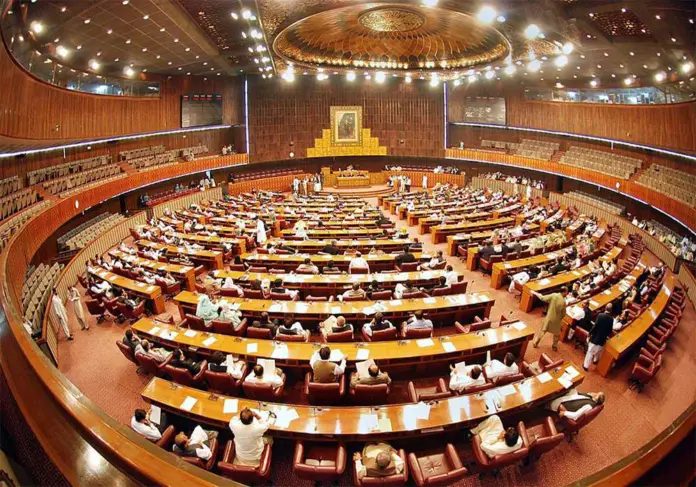If the Supreme Court of Pakistan decides to uphold the deputy speaker’s ruling, the country will go for new elections.
If the top court declared Sunday’s action ‘unconstitutional’, the National Assembly will decide on the new prime minister after the no-confidence motion. The Lower House will remain intact.
In case the three-member bench headed by Chief Justice Umar Ata Bandial refused to interfere in political matters, PM Imran Khan will continue working for at least three days and both the PM and the Opposition Leader in National Assembly Shehbaz Sharif will have to agree on the name of the caretaker prime minister within the time period. The assembly, however, will stand dissolved.
Article 224 of the Constitution of Pakistan allows the PM and the opposition leader of the dissolved assembly to hold a consultation on the caretaker prime minister. The president will give approval to the name, while Imran Khan will continue to work until the caretaker PM takes charge.
If both don’t agree, the matter will go to the Senate (since the NA stands dissolved) and an eight-member committee of the top house will decide on the caretaker PM.
The NA speaker of the dissolved assembly will give approval to the names of the committee members. Article 53 of the Constitution allows the speaker to continue working until the formation of the new assembly through elections.
If the Parliamentary Committee of the Senate of Pakistan fails to reach a consensus on a caretaker PM within three days, the Election Commission of Pakistan will give the name of the caretaker prime minister within two days. The new set-up will be bound to hold the fresh elections within 90 days.
The caretaker government will present the national budget, according to Article 86 of the Constitution. The caretaker government could present the new budget for a maximum of four months, as per the constitution.
The ball is in the court of the SC, which on Sunday announced that all orders initiated by the prime minister and president regarding the dissolution of the Lower House would be subjected to the court’s order.
The top court accepted the request of the Pakistan People’s Party to review the deputy speaker’s actions. However, it rejected the opposition’s request to suspend the deputy speaker’s ruling. The top court directed the attorney general to present his point of view before the three-member bench today (Monday).







